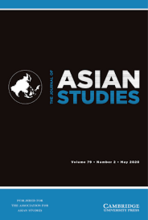
Abstract
Historiography has long been concerned with the problem of determining standards for evidence. For traditional Chinese historians, it was Confucius who provided the model for historical writing. As the attributed author of the Springs and Autumns, Confucius demonstrated qualities of narratival restraint, historical factuality, moral profundity, and a refusal to engage in idle speculation. Of course, his model was not an easy one to emulate, and later historical writings have drawn on both the factual records of the imperial court (which were not always factual or free of ideological interests) and nonofficial sources, such as private accounts, anecdotal literature, and hearsay. The present essay focuses on this intersection between anecdotal sources and historiography. This is precisely the point when historiography must reflect on its narrative condition, as narrative has interests other than factuality or moral truth. The author shows how the historiographic anxiety over unreliable sources has often coexisted with a fascination with anecdotal stories and gossip.